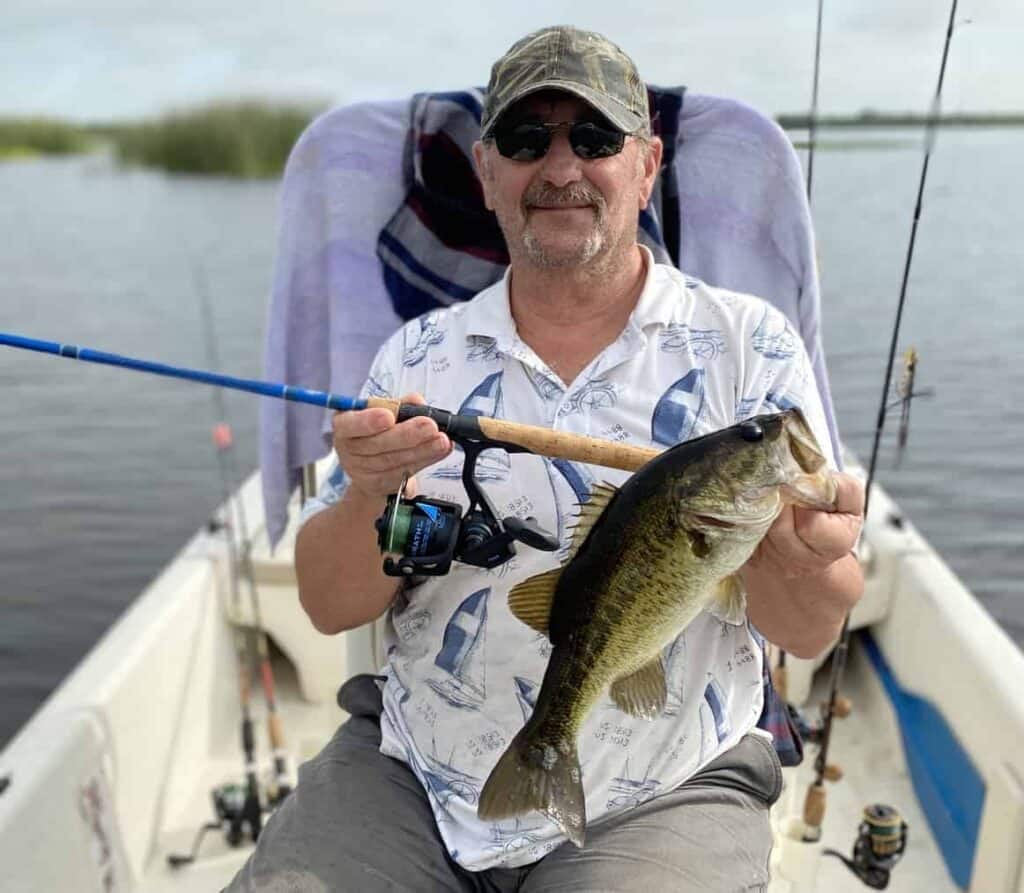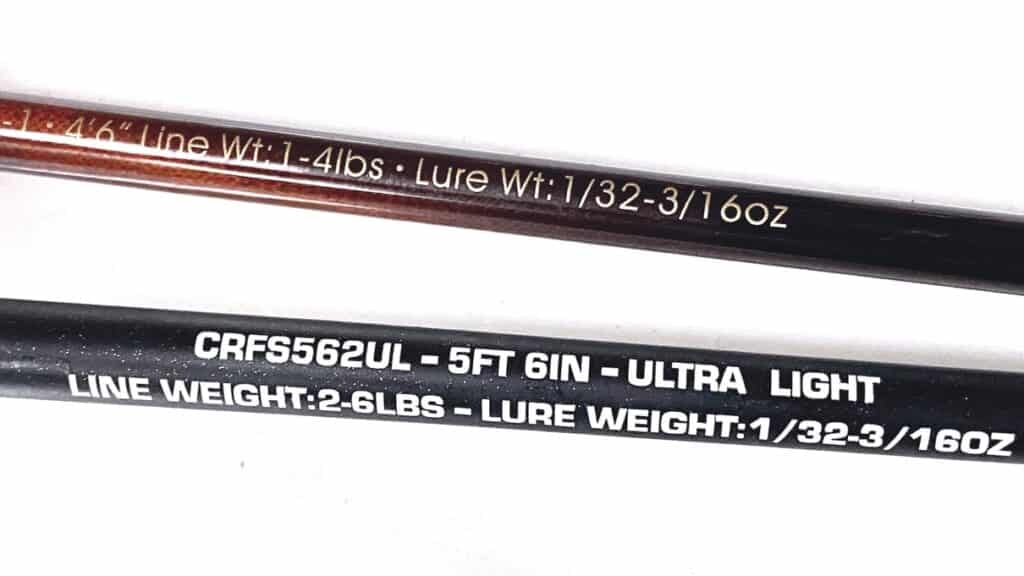
If you’re new to fishing or just getting started, you may be wondering what is more important, the rod or the reel?
Don’t worry, you’re not alone. In fact, anglers have been debating this very question for as long as rods and reels have been invented.
But in this article, I’m going to answer the question and tell you why.
Table of Contents
What Is More Important, The Rod or The Reel?
When it comes to fishing tackle, the rod is the most important component and should be carefully selected based on your budget and type of fishing. The rod is responsible for casting, lure action, and fighting the fish.
Many anglers will argue the reel is more important, but its not! And here is why:
The reel is a mechanical piece of equipment and its function is to ‘reel’ in line. All fishing reels are capable of this basic function.
Yes, it is true some reels are more expensive than others. Entry-level reels have basic components and features. More expensive reels are made of higher quality materials such as aluminum or carbon.
But, hear me out: The function is the exact same! It simply reels in fish.
So Why Is the Rod More Important?
The rod is responsible for so much more when it comes to being successful at fishing!
The rod is how you cast a lure or bait. The rod dictates the type of action your lure or bait will have in the water. And most importantly, the size and strength of the rod determine how you will fight a fish and if you will be successful.
The rod is what you hold in your hand, it must be comfortable and not too big or too small. A rod is not a mechanical piece of equipment, and it can last for a lifetime!
How To Choose A Fishing Rod
When choosing a fishing rod, ask yourself what type of fishing you will be doing. Will you be fishing freshwater or saltwater? Will you be using lures or live bait? Will you need to cast far or be fishing from a boat?
By answering these types of questions, you can narrow your search and find the best rod for your fishing application.
Fishing Rod Terminology
Speed/Action of the Rod

The speed of the rod is also called the rod action. This refers to how fast the rod will rebound to its original state after you flex it to reel in your catch or cast a lure.
The rod action is important because it impacts your ability to hook a fish, casting distance and lure action.
The rod action can be slow, medium, moderate, and fast, and extra fast. Slow action rods are very flexible and sometimes referred to as ‘wet noodles’. extra fast action rods are very stiff, and therefore very sensitive but not as forgiving when trying to cast.
The stiffer the rod, the faster the action. The more flexible the rod, the slower the action.
Length
The length of a fishing rod refers to the overall length from the bottom to the top of the rod. Rod length is important because it can impact your casting distance, the accuracy of your cast, hook set leverage, and maneuverability.
Fishing rods can be anywhere from 4 feet all the way to up to 12 feet in length. The most common fishing rod length is between 6 and 7 feet.
The length is the rod is somehwat of a personal prefernece. I generally like to use longer rods because I often fish from a center console boat in open water, where length is not an issue.
However, when I go on hiking or backpacking trips, I prefer to use a shorter telescopic fishing rod to save space.
Power
The power of a fishing rod refers to the ability to lift or ‘pull’ weight (such as a big fish!).
For example, a heavy power rod will be able to lift up a 10-pound weight off the ground. A medium power rod may only be able to lift a 5-pound weight off the ground.
Power determines how strong the rod is, and the size and strength of the fishing line you should use.
Heavy power rods are typically equipped with heavier lines, and light power rods are typically equipped with lighter lines.
If I was fishing for big blue catfish in a river with strong current, I would choose a heavy power rod. I need something strong enough to fight these big heavy fish in swift water.
Conversely, if I am fishing for panfish in a backcountry creek in the Appalachian mountains, I would choose an ultralight rod, because panfish rarely exceed a few pounds.
Material
The material of your rod can impact how it will perform and how long it will last. Fishing rods are made from many different types of material, the most common are:
- Graphite
- Fiberglass
- Composite
- Bamboo
- Wood
Each type of rod material has its pros and cons, and i’ll save the details of that for another article. Just know that almost any rod produced on the market today is capable of catching fish if used correctly for the type of fishing you are doing.
Conclusion

Fishing is a hobby that is and should be affordable and welcoming to anglers of all backgrounds.
So yes, the rod is the more important factor between a rod and a reel. But really, the most important factor when buying a rod and reel should be to stay within your budget, and to get outside and fish!
Now that you know about fishing rods, take a look at my write up on the different types of fishing reels here:
Additional Reading
Like this post? Save it on Pinterest.

